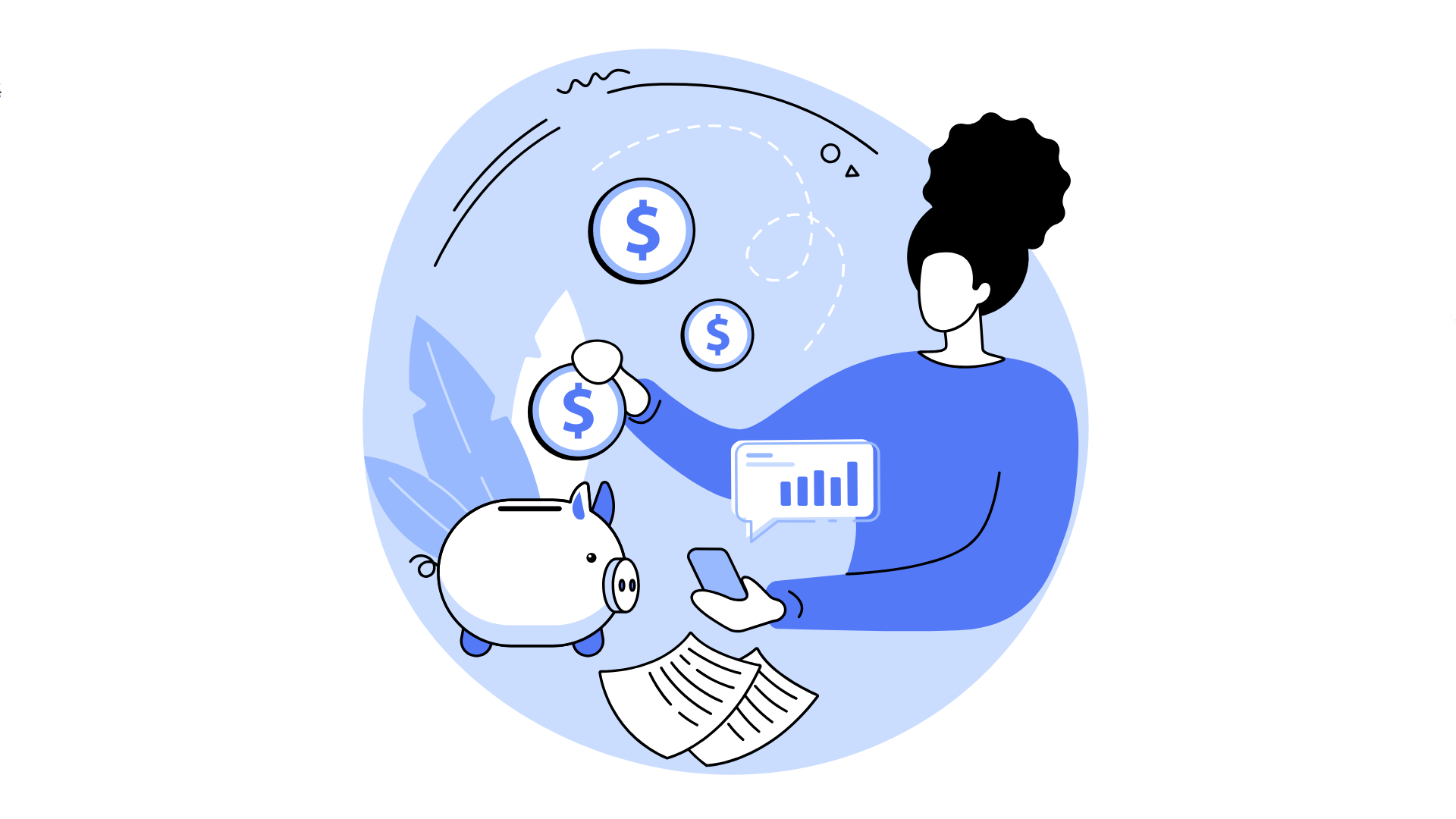
Summary
Wondering how much ticket brokers really make? See real income examples, profit margins, and what beginners can expect in 2025.
If you’re thinking about starting a ticket reselling side hustle, there’s one question in your head before anything else:
“How much do ticket brokers actually make?”
On YouTube and TikTok, you’ll see big numbers thrown around—$10k months, $30k months, “quit your job” thumbnails. Some of it is real, some of it is pure hype.
In this guide, we’ll break down:
- How ticket brokers make money
- Real-world income examples (with sources)
- What beginners, intermediates, and advanced brokers can realistically expect
- What affects your profit margins
- How tools like ProTickets can help you move toward the higher end of those ranges
This isn’t a get-rich-quick pitch. It’s a realistic look at ticket broker income in 2025.
How Do Ticket Brokers Actually Make Money?
At a basic level, a ticket broker (or ticket reseller) makes money by:
- Buying tickets for in-demand events (concerts, sports, comedy, theatre)
- Reselling them on approved marketplaces (StubHub, SeatGeek, Ticketmaster Verified Resale, etc.) at a higher price
- Keeping the difference after fees
Profit comes from three main levers:
1. Buying Under Market Value
Brokers aim to buy tickets below the price fans are willing to pay later. That can happen when they access presales before the general public, when initial pricing is conservative, or when the market underestimates demand for a city or date.
Platforms like ProTickets Events Discovery and Billboard Charts integration help you find artists and events where demand is likely to be strong, instead of guessing.
2. Market Timing & Repricing
The price of a ticket isn’t static. It’s affected by on-sale hype, changes to the tour (added shows, cancellations), team performance (playoff races, rivalry games), and viral moments (a song blowing up on TikTok, an artist going trending).
Experienced brokers watch the market and adjust prices as the event approaches. With ProTickets My Favorites and My Calendar, you can track key events and dates so you don’t miss crucial pricing windows.
3. Channel Selection
Different marketplaces have different fee structures, buyer bases, and strengths (some are better for sports, others for concerts). Profit is often a game of where you list, not just what you bought.
Industry blogs and ticketing platforms consistently emphasize that fees and marketplace choice significantly impact your net profit.
Real-World Income Examples from Ticket Resellers
Let’s look at publicly documented examples—not to promise you these results, but to show what’s possible at the high end.
Case Study 1 – Accounting Manager Making Up to $32,000/Month
In a story published by Entrepreneur, an accounting manager who started reselling tickets on the side reported making up to $32,000 per month in profit from ticket resales, on top of his full-time job.
Key points:
- He’d been reselling for several years
- He built systems and focused heavily on sports tickets
- This is a scaled, advanced operation—not a day-one result
Case Study 2 – PE Teacher Earning $3,000–$12,000/Month
On Side Hustle School, a PE teacher shared how he grew his ticket reselling side hustle: for several years he made around $500–$1,000 per month, and over time built it up to $3,000–$5,000 in slow months and up to $10,000–$12,000 in busy months, working roughly 20 hours per week.
Again, this came after trial and error, learning from mistakes, and building a repeatable system.
Case Study 3 – Broker Gross Revenue vs. Actual Profit
Some industry profiles are even more dramatic. One interview with a long-time ticket broker noted that “average ticket brokers” can gross $1–3 million per year in ticket sales, but that’s revenue, not take-home profit; they still have to pay for inventory, staff, and operations.
This is important: gross sales ≠ profit. A broker moving $2M in tickets might keep only a fraction of that depending on margins and expenses.
What About Average “Salary” Numbers?
Job sites that report “ticket broker salary” (these typically refer to employees at brokerages, not independent resellers) show:
- In the U.S., an average ticket broker salary around $66,000/year.
- In Canada, estimates around $58,000–$59,000/year, avec des postes débutants autour de ~$43K et des seniors au-dessus de $70K.
Those numbers help you understand what a stable job in the ticket industry might pay, but they don’t represent the upside (or risk) of running your own reselling business.
As an independent broker, your income is:
- Not capped like a salary
- Not guaranteed like a salary
You’re taking on risk and volatility in exchange for potential upside.
Realistic Earning Ranges by Experience Level
Let’s put all this into practical ranges. These are not guarantees, but rough targets based on public examples and how most side hustles evolve.
Beginner (0–6 Months)
Profile:
- Learning how presales, marketplaces, and demand work
- Budget: maybe $300–$1,500 tied up in tickets
- Tools: just getting started with ProTickets, joining Discords, etc.
Typical outcome: a few winning events, a few losers, total profit maybe a few hundred dollars to ~$1,000/month once you start getting traction. The main goal here is not maximizing profit; it’s not blowing up your bankroll while you learn.
Intermediate (6–18 Months)
Profile:
- You’ve identified your favorite niches (e.g., country, NHL, certain arenas)
- You use tools like ProTickets Data Explorer and the Chrome extension to buy smarter
- You’re more selective about which events you enter
Typical outcome: more consistent wins, fewer “what was I thinking?” buys. Possible range: roughly $1,000–$5,000/month in profit, depending on capital, volume, and market timing.
Advanced (18+ Months, Treating It Like a Business)
Profile:
- You’re comfortable tying up larger amounts of capital across many events
- You have systems for tracking inventory, pricing, and performance
- You treat ProTickets, Discord communities, and your spreadsheets as your trading desk
Possible outcome (not promised): Based on the case studies, it’s realistic for advanced brokers to hit $5,000–$20,000+ per month in strong markets, with outliers like the $30K+ example. At this level, you’re closer to running a small ticket trading business than “just a side hustle.”
What Affects Your Profit Margins?
Two brokers can buy similar tickets and end up with totally different profits. Why?
1. Capital & Risk Management
More capital = more deals you can enter. But more capital also = more risk if you overextend or misread demand. Good brokers learn to diversify across events and avoid going “all in” on one show.
2. Event Selection
Choosing the right events is everything. Factors include artist or team popularity, city size & fan base, venue capacity, day of week & time, and competing events in the same city.
Tools like ProTickets Events Discovery, Billboard Charts, and Data Explorer help you quickly filter for high-potential events instead of randomly jumping on every tour announcement.
3. Data & Tools
Industry blogs emphasize that profits come from strategy, timing, and data, not luck. Using the ProTickets Chrome extension to see live section inventory and compare prices, AI-powered profitability analysis to sanity-check potential buys, and historical trends via your own sales data and the ProTickets dashboard can easily be the difference between a 10% margin and a 40%+ margin on a given event.
4. Fees & Marketplace Choice
Every platform has fees—for both sellers and buyers. Some marketplaces charge higher seller fees but have more buyers; others have lower fees but slower sell-through. A broker who understands fee math and chooses the right marketplace for each event will keep more money in their pocket.
How ProTickets Can Help You Aim for the Higher End of the Range
You can try to run a ticket brokering side hustle with only manual notes and a browser full of tabs—but you’ll be slower, more disorganized, and more likely to miss key opportunities.
ProTickets is built specifically for ticket brokers and includes:
- Dashboard – See key stats, upcoming events, daily schedule, and industry news at a glance.
- Events Discovery – Browse and filter events by city, date, genre, and more to spot opportunities early.
- Data Explorer – Dig into event, venue, and artist data with real-time listings and, where available, sales history.
- Billboard Charts integration – Track trending artists and songs to anticipate rising demand.
- Presale Codes Manager – Store, organize, and track presale codes, with reminders before they expire and links to relevant events.
- My Favorites & My Calendar – Build a watchlist of events and never miss a presale or on-sale time again.
- Chrome Extension – Analyze inventory and pricing while browsing ticketing sites; auto-detect presale codes and save events to your ProTickets account with one click.
- AI Tools & Discord Community – Get faster insights, learn from other brokers, and stay ahead of market shifts.
These tools don’t guarantee profit—but they stack the odds in your favor by making you more informed, faster, and more organized than the average reseller.
FAQ: Ticket Broker Income & Profitability
Is ticket flipping really profitable in 2025?
It can be. Industry guides and case studies show that with the right strategy, some brokers earn from a few hundred dollars per month up to five figures. Profitability depends heavily on event selection, capital, tools, and risk management.
How long does it take to start making money?
Some beginners make their first profit within their first few events, while others need several months of trial and error. Realistically, plan for 3–6 months of learning before judging the side hustle.
Can you live full-time off ticket reselling?
Yes, some advanced brokers do, as the $30K/month case study shows. But it’s a business with risk and volatility, not a guaranteed salary. Many people prefer to keep it as a high-powered side hustle while maintaining a stable job.
Do you have to pay taxes on ticket reselling income?
In most countries, yes—profits from reselling tickets are generally taxable as income or business profit. Tax rules vary widely by jurisdiction, so it’s important to consult a qualified tax professional.
How much money do you need to start?
You don’t need tens of thousands. Many beginners start with $300–$1,000 allocated to a few carefully chosen events, then reinvest profits as they learn and gain confidence.
Final Thoughts: So, How Much Do Ticket Brokers Really Make?
The honest answer:
- Some make nothing (they treat it like gambling).
- Many make a few hundred to a few thousand dollars per month as a side hustle.
- A smaller group, who treat it like a real business and use serious tools, can reach multi-thousand or even five-figure months, with examples up to $30K+ in profit.
If you want to be closer to that second or third group, you need a data-driven approach, organized systems, and the right tools and community. That’s exactly what ProTickets is designed to provide.
Ready to find out how much you can make as a ticket broker? Start your free trial with ProTickets, add your first events to Favorites and Calendar, and let our Dashboard, Data Explorer, and Chrome extension guide your next smart purchase.
